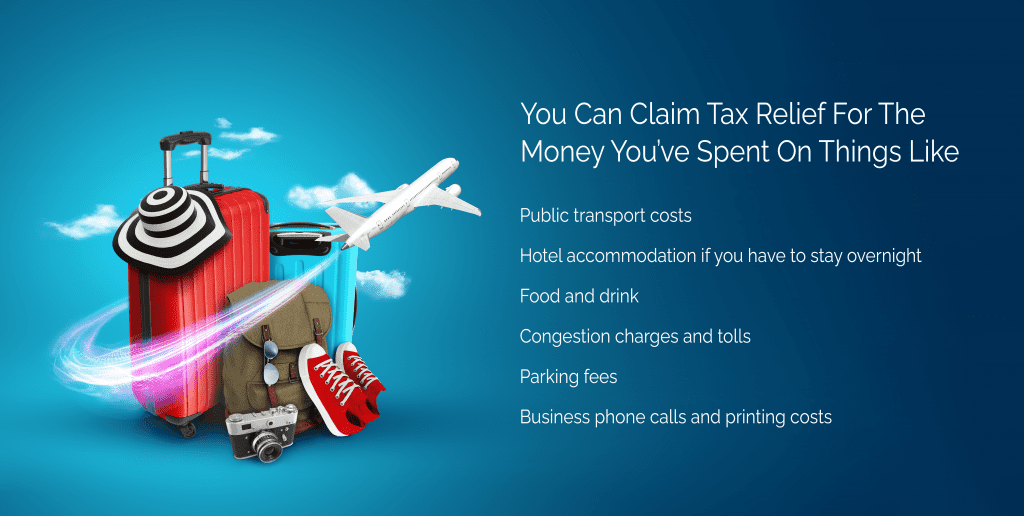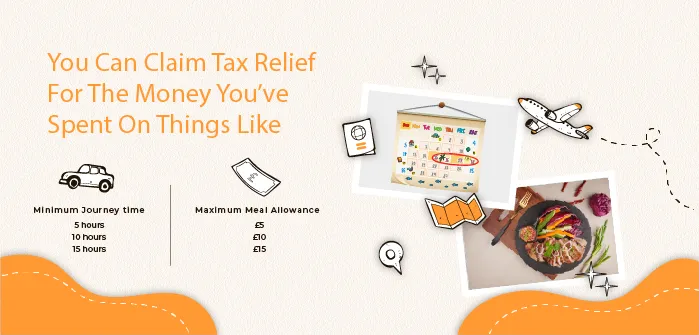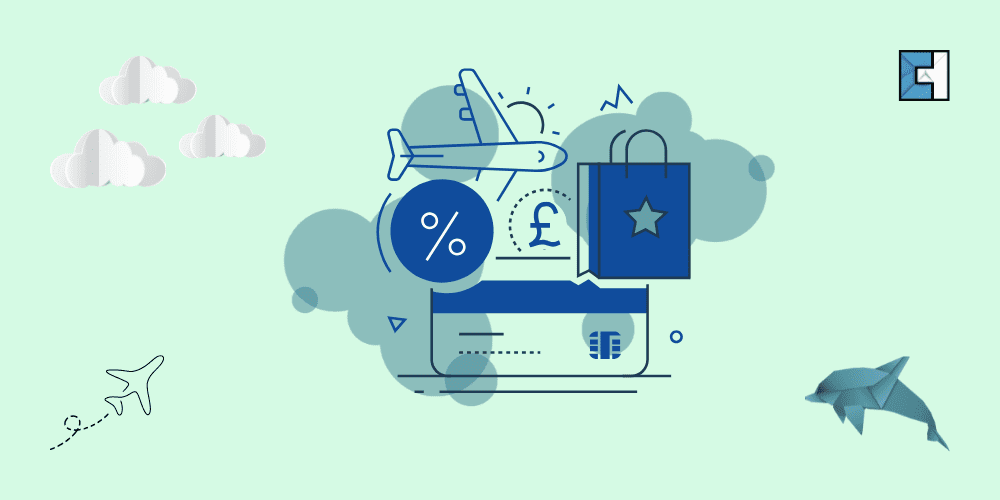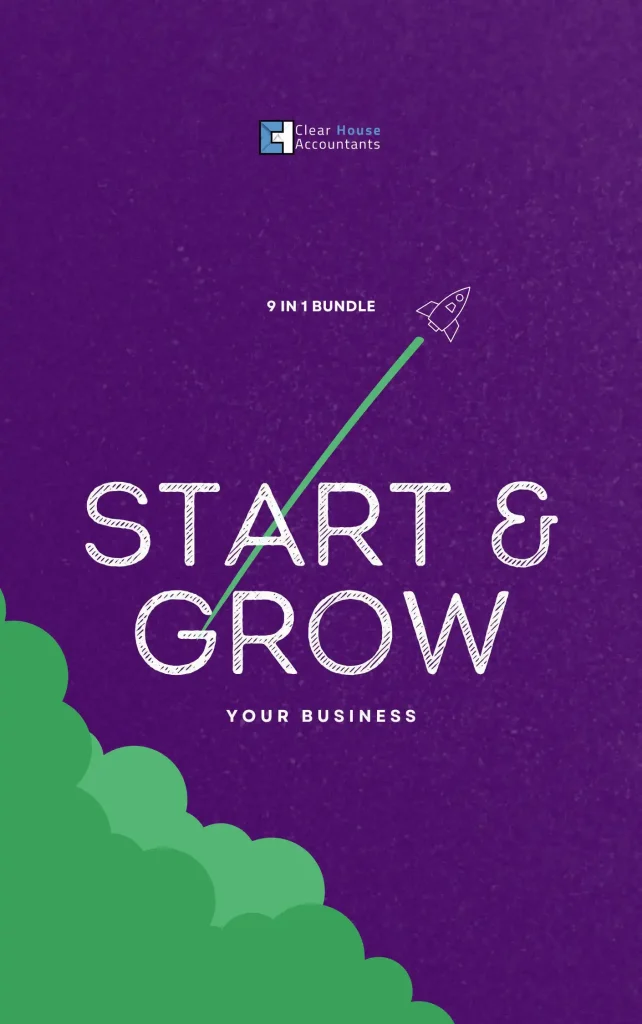What are Travel and Subsistence Expenses?
Travel and subsistence expenses are incurred when an employee travels for business purposes from one place to another. It includes the cost of travelling, meals, accommodation, laundry, and other related expenditures.
Since subsistence is considered a cost associated with business-related travel, it falls under the same category.
As an employee, when you are travelling to another location as a part of your job, you are qualified for a certain amount for your travel and subsistence expenses, depending on your working rank or designation.
However, before the actual travel begins, employees have to provide a list of expenses that can be possibly incurred during travel. These particular expenses are qualified for reimbursement if you are working for an organisation or a company.
However, If an employee spends over limits on travel and subsistence expenses, they have to pay that cost from their own pockets.
Being an employer, you are obliged to pay certain taxes and National Insurance NI contributions to HMRC on the travelling costs of the employees. That cost includes:
- Travelling costs such as train tickets or flight tickets.
- Reimbursement of travelling expenses.
- Accommodation costs such as Hotel if the employer needs to stay overnight.
- Food costs and other subsistence expenses such as parking charges, tolls, congestion charges and business phone calls
Understanding taxes if leaving the UK, income tax, and HMRC Self-Assessment Forms are key for travel and subsistence expenses.
A Change in Subsistence Expenses
As of April 2019, HMRC no longer requires businesses to provide receipts for every cost incurred as part of a business journey. the employee will just need to prove they were on a business trip when the expenses were incurred. So, if an employee on a business trip eats three meals, they actually only need to provide proof (a receipt) for one of those meals.
However, things to keep in mind:
- This doesn’t apply if you use specially agreed custom allowance rates
- It also doesn’t apply if you follow industry-agreed rates
Unclaimable Travel and Subsistence Expenses
There are certain costs and expenses that are not under the category of travel and subsistence expenses, and therefore, you cannot claim those expenses for reimbursement from your organisation.
Unclaimable expenses include
Daily Travelling Expense – the amount you spent on commuting from your home to the permanent workplace regardless of time and distance. However, If an employee has to travel some extra distance for the purpose of work, the cost spent on the distance can be claimable.
Personal Vehicles — if the employee has purchased a personal vehicle on loan or through capital allowance, both amounts, respectively, don’t come under the travel and subsistence allowance and, hence, are unclaimable.
As per HMRC, employees are entitled to tax-free reimbursements for their business travelling. The employee has both options: get paid by the employer tax-free or the employee themself can opt for tax relief on any shortfall via their tax return.
Learn about Company Car Or Car Allowance: Which Is Better For You?, car expenses you can claim, and capital allowances
Claimable Travel Expenses

Mileage Allowance
HMRC has allowed the usage of personal vehicles for work-related travelling on fixed amounts. These fixed amounts should be approved by the organisation first and then we can proceed with the claim. However, if the employee incurred over the fixed amount, they should pay the exceeding amount on their own. However, if the employer doesn’t pay the Approved and fixed allowance, the employee can claim the full amount spent on the travel.
VAT on Mileage Allowance: If your organisation is VAT registered and does not use flat rate VAT accounting, it can claim back the VAT on the fuel element of the mileage allowance.
Workplaces
Temporary Workplace
the employee can claim the incurred cost spent at the temporary workplace. A temporary workplace is where the employee spends less than 40% of work time or has spent less than 2 years.
Permanent Workplaces
An employee cannot claim the daily expense of travelling from home to the permanent workplace. But there are some exceptions, such as:
- If you frequently travel from one place to another for work-related purposes, such as meeting clients, you can claim the expenses spent on your travel. The important thing to keep in mind is that only those expenses would qualify for a claim if your travel journey is different from usual travel to the workplace.
- If you have to travel on an urgent basis; if there is an emergency call-out service, the employee can claim the expenses incurred for that emergency travel.
Extensive Travelling
Frequent travelling could be a part of the job. In such cases, the employee extensively travelling from one place to another has the right to claim the expenses incurred during his travel. However, the employer should make sure that the place where the employee is travelling should not fall under the permanent workplace category.
Hotel and Subsistence Expenses
Any expenses incurred by the employee on accommodation, meals and drinks, sundry charges such as laundry, etc, are obliged for the tax to HMRC. The employee is accountable to HMRC in case there are any inaccurate expenses in the bills. Companies may choose to allow employees to go over the limits, but they’ll have to pay tax every time they do.
Scale Rates for Subsistence Expenses
HMRC has set the standard rates for subsistence payments known as “scale rates for subsistence expenses”. If the employees claim their expenses as per these scale rates, their payments will be free from tax and National Insurance contributions.
Breakfast Rate
you can claim a tax-free breakfast price of up to £5. However, this tax-free rate is claimable only if you had breakfast before 6 am and leave your current accommodation place before the usual time.
Meal Rates:
- you can be paid the price of one meal up to £5 if you are away from your place of stay and workplace for more than 5 hours.
- Similarly, you can be paid the price of two meals up to £10 if you are away from your place of stay and workplace for more than 10 hours.
- You can be paid the price of the evening meal up to £25 if you leave your workplace after 8 pm or later than the usual working hours.

Note:
The above-mentioned Benchmark scale rates are only qualified for the following conditions:
- the travel must be part of the employee’s job or to a temporary place of work.
- the employee should be absent from their normal place of work or home for more than 5 hours or 10 hours.
- the employee should have incurred a cost on a meal (food and drink) after starting the journey.
Travel and Subsistence Cost as an Employer:
An employer is obliged to pay certain taxes and National Insurance on the reimbursements they made to employees for their Travel and subsistence costs. It includes costs of Travel, reimbursing travel, accommodation, and cost of utilising Public transport. Also, subsistence costs such as meals, drinks and laundry charges. The employer should take care of all these costs and should accurately report to HMRC.
In case your employees are using public transport, its costs include the following:
Seasonal Tickets
If directly provided to the employees:
As an employer If you provided your employee with a seasonal travelling ticket, you should report the cost of a ticket to HMRC via filing up the cost on the form P11D. ticket cost should also be included in the earnings of the employees, and Class 1 National Insurance should be deducted via the employee’s payroll.
If reimbursement is paid for seasonal tickets:
If your employees purchase seasonal tickets on their own, as an employer, you have more than one option for reimbursement, such as
- you can cover the ticket costs by providing an additional allowance to the employee
- You can increase the salary of the employee,
However, the cost of the seasonal ticket is counted as earnings, so the employee is responsible for paying taxes and class 1 national insurance through their payroll.
Loan for seasonal tickets
If an employee is provided with a loan by the employer for a season ticket, it should be considered as any other common loan, and therefore, the employer has to pay national insurance and certain taxes on it. However, there are some interest-free loans such as beneficial loans etc.
Contribution to Providing Facilities to Employees
As an employer, if you are paying a certain amount for facilitating your employees, you are not obliged to report these amounts to HMRC and neither have to pay any tax or National Insurance contribution on it. For example, if you are contributing to financing a bus route to reduce the travel distance for your employees, you are under no obligation to pay any type of tax.

Conclusion
The complicated reimbursement process has made it difficult for employers and employees alike. Those who are employed through an intermediary body like an agency or umbrella company might spend quite some time on their business travel expenses while trying to figure out how much is eligible in subsistence costs (and what’s not).
Consequently, it’s important for small business owners and entrepreneurs to establish processes with specialised accountants so that they can file claims quickly when necessary. However, If you are in search of a Specialised Accountant, Clear House Accountants have a team of expert and professional chartered accountants with years of experience. The team at Clear House Accountants take care of all types of tax obligations and National Insurance contributions.









































































